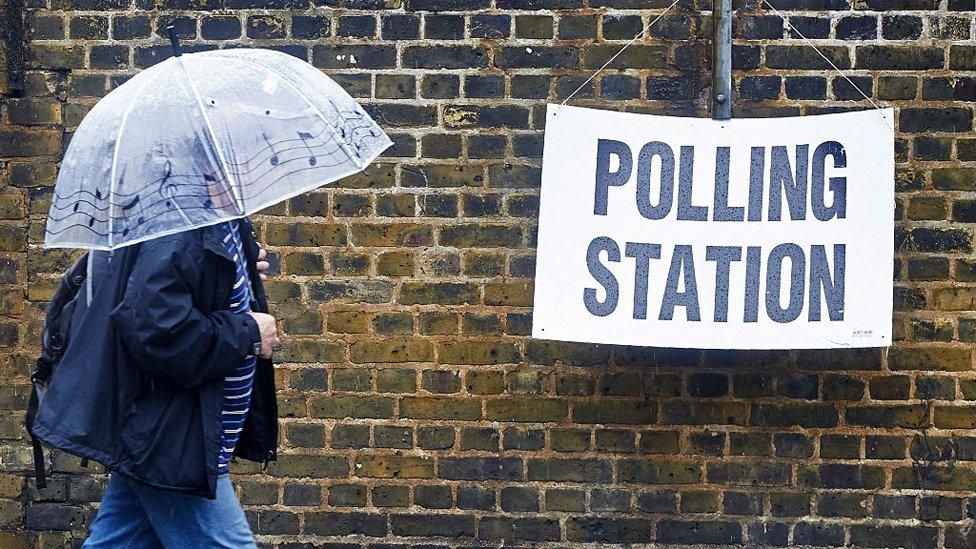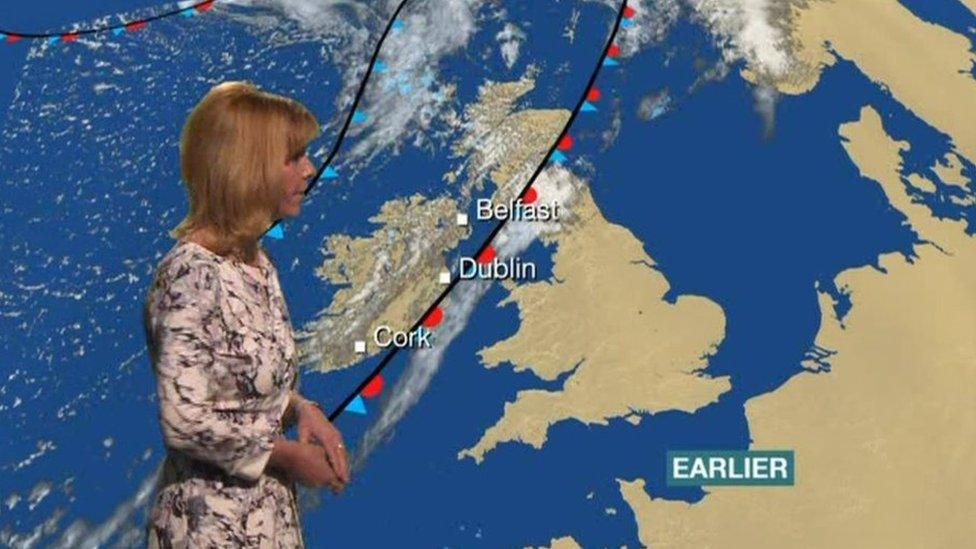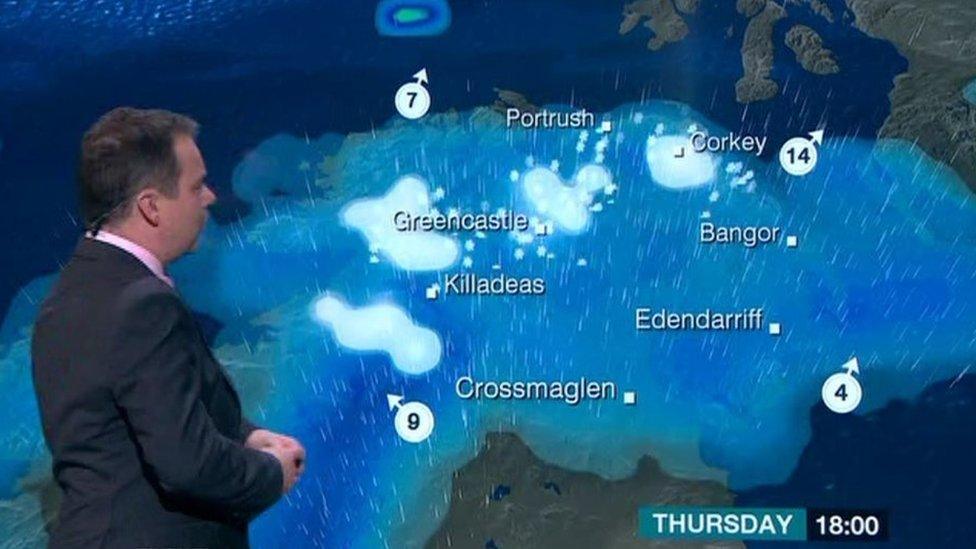NI election 2022: Does bad weather really put people off voting?
- Published

The forecast for Thursday is better than the conditions this voter faced
It is a topic of debate following many elections - did the weather affect voter turnout?
The evidence is mixed: Studies from the Republic of Ireland suggest it can, but research on UK general elections has found no correlation between weather conditions and polling.
So do we really think about rain and sunshine when we decide if we want to cast our vote or not?
I looked back at polling day weather for the previous three Northern Ireland Assembly elections in 2011, 2016, and 2017.

SIGN UP FOR ALERTS: Get extra updates on BBC Northern Ireland election coverage

On 5 May 2011, turnout dropped to 55.7% - down almost seven percentage points from the previous election.
The weather that day was poor with patchy rain and showers throughout the day, followed by heavy rain and winds in the evening.
Weather conditions improved greatly for the next election on 5 May 2016, with dry sunny spells and light winds.
However, turnout still dropped by a further percentage point - to 54.9%.

It was a reasonable day to head to the polls in 2016
Political commentator David McCann said he did not believe weather affected voter turnout.
"It's more about the motivation to get out and vote," he said.
"If people are feeling a bit lethargic about local politics, then that can lead to a fall in turnout.
"But if people think there is a lot at stake they will come out to vote in rain, hail or shine."
Big turnout - despite sleet
Indeed, there was a big jump in turnout for the last assembly election on 2 March 2017, despite some very unsettled weather.
Chilly, dry and sunny weather during the day was followed by a very wet and cold evening with sleet and snow showers.
That did not stop voters heading to the polls leading to a turnout of 64.78% - up almost 10 percentage points.

Voters faced poor weather for the 2017 assembly election
Research carried out by Oxford University into UK general elections also showed no correlation between voting turnout and the weather.
It suggested people were more likely to vote if the election race was close and there was a strong difference between the parties leading in the polls.
However, research carried out by the Economic and Social Research Institute (ESRI) in the Republic of Ireland found that poor weather could stop people going to vote.
"We studied seven Irish general elections combined with historical rainfall data from Met Éireann and found that rain could have a significant impact," said senior research officer Paul Redmond.
"We found that a rainy day with 30mm of rain in 24 hours could lead to about a 3% reduction in voter turnout, but this varied between rural and urban areas.
"The highest density constituencies could see up to a 5% reduction in turnout because of rain whereas it didn't really impact less dense constituencies in rural areas."
What explains this difference?
"One reason could be the mode of transport," said Mr Redmond.
"People in rural areas tend to travel by car more so it doesn't matter if it rains, whereas people in cities would tend to walk or cycle more so the rain could put them off going to the polling station."
A mild day on the cards
Planning an election to coincide with fine weather in Northern Ireland is an impossible task.
Our temperate climate means that accurate forecasts can only really be given a few days before polling day.
Polling day is expected to be rather cloudy and mainly dry with brisk winds.
A few patches of rain are possible along with the odd shower.
The day will start mild with morning temperatures about 10C, rising to 16C in the afternoon.
It will stay mild through the evening with temperatures in the low double figures.

POSTCODE SEARCH: Who is standing in my area?
WHAT'S HAPPENING WHERE: Really simple guide
NORTHERN IRELAND: Essential guide to the Northern Ireland election
NOTIFICATIONS: Sign up for Northern Ireland election alerts

Related topics
- Published14 April 2022

- Published8 April 2022

- Published4 May 2022
